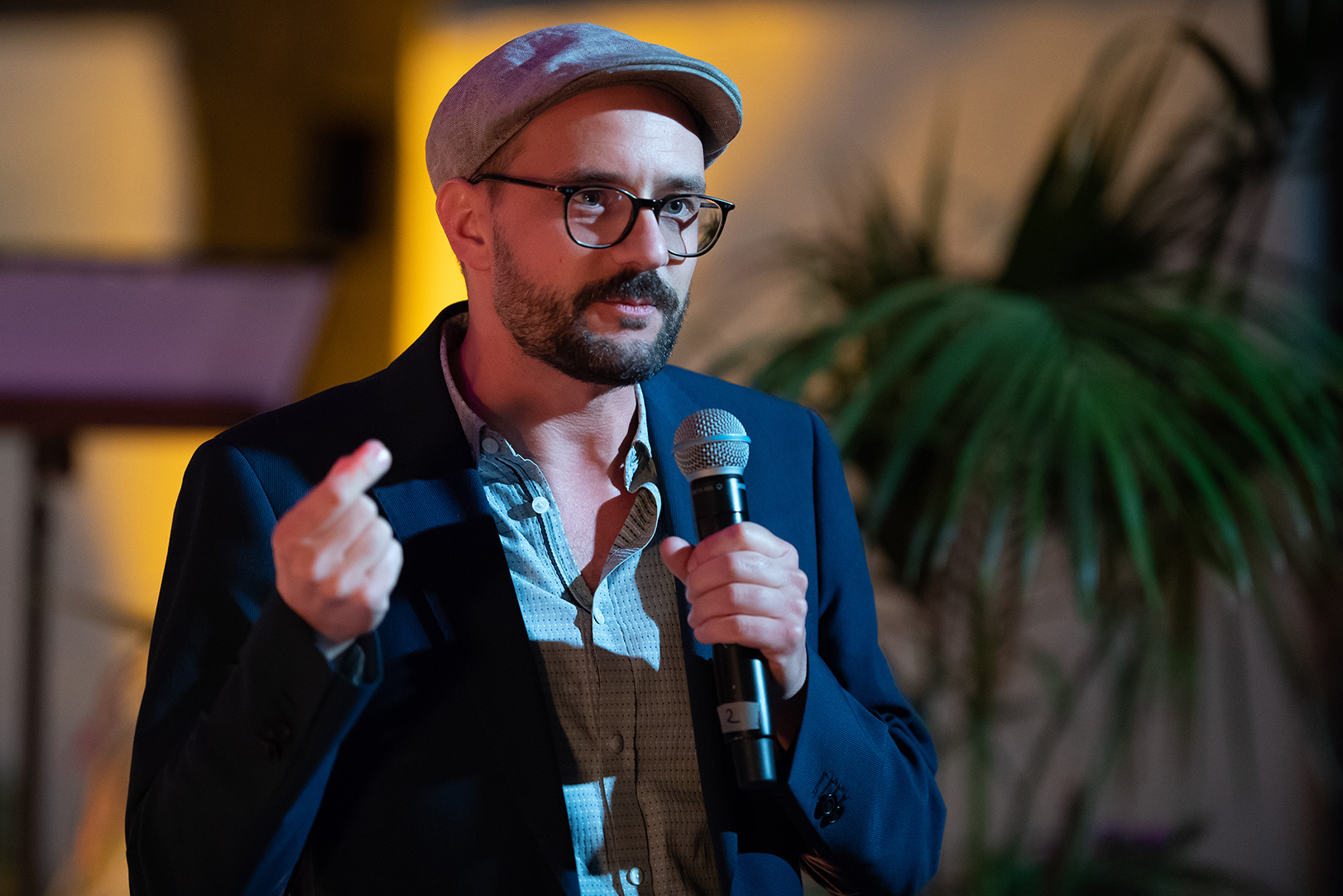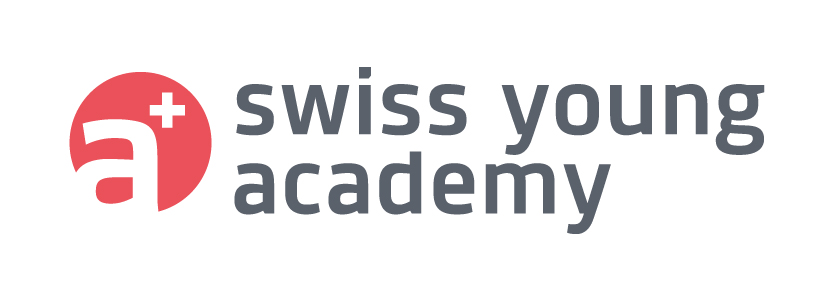Networking science.
Using law to make a fairer world

A portrait of George Orwell, the author of the dystopian novel “1984”, hangs on the wall in Stefan Schlegel’s office. It’s not hanging there by chance: the Englishman described his “natural hatred of authority” as an important driving force behind his writing, as Schlegel explained. And this “anti-authoritarian impulse” links the man from Eastern Switzerland with the writer and journalist. Someone who questions authority? This is not exactly the first thing that is commonly associated with a jurist. Stefan Schlegel is aware of this. That’s why he also calls himself an “unconventional jurist”. “I ask myself to what extent law serves certain interests. Behind this question is an understanding of law as an instrument of power,” he explained. A “conventional” jurist, on the other hand, is more interested in interpreting law as a whole that is as free of contradictions as possible.
“I ask myself to what extend law serves certain interests. Behind this questionis an understanding of law as an instrument of power.”
For a long time, Stefan Schlegel dealt primarily with migration issues; as a student, he provided legal advice on a voluntary basis to women migrants and migrants with no identity documents. He is still committed to similar work today – for example with Amnesty International or “Operation Libero”. In addition, he is co-founder of the think tank “foraus – Foreign Policy Forum”. It may be that his origins have left their mark on him in this respect. “I grew up in a border town, in Buchs,” he said. “That’s where Bosnian refugees arrived when I was young”. His grandfather - a railway worker – also told him about the waves of refugees from Hungary and what was then Czechoslovakia.
As a high-school student, Stefan Schlegel could also have imagined studying natural sciences or literature. But the decisive factor in his choosing law was the slightly childlike-romantic idea of being able to do something for a “more just world”. He studied in Zurich and Lyon. His interest in migration law took him to Bern as a research assistant, to the legendary constitutional- and international-law expert Walter Kälin; his dissertation took him to Toronto. When Schlegel’s supervisor there was appointed director of the Max Planck Institute in Göttingen, the newly-qualified doctor followed her and worked for three years as a post doc in the field of ethics, law and politics. This interdisciplinary approach suited Schlegel down to the ground. But one thing was clear to him: “If I want to pursue an academic career in Switzerland as a jurist, the market’s very small - it consists of exactly 10 universities. And I have yet to write my ‘habilitation’ thesis”. So eighteen months ago, he seized the opportunity to join the University of Bern as a senior assistant. He moved to the federal capital with his partner, an art historian whom he already knew from his high-school days, and his son, who was six months old at the time. Here he is also working on his “habilitation” (post-doctoral) thesis on the property guarantee. Why has he temporarily moved away from migration law? “At the beginning of one’s studies, one allows oneself to be guided above all emotionally, and later on more intellectually”, explained Schlegel. “The topic of migration appealed to me emotionally.” As a child, he said, the term “justice” involuntarily brought to mind criminal law. But he had found that administrative law, with its issues of income, personal development and security options, has a lot to do with justice. “It’s about the power imbalance between the individual and the State”.
“The topic of migration appealed to me emotionally.”
When he speaks like this, he is completely the sober, reasoned jurist. And yet, when he explains why he would like to get involved in the Young Academy, the idealism that once took him to law school shines through: “I want to make a contribution to improving society,” he said. “But at the end of the day, curiosity is my main motivation.” That curiosity is ultimately also the driver of an academic career. “I want to talk to lots of people, to understand what I can learn from them”. For him, it’s important to use the Academy to take the “scientific approach as an attitude” to society: particularly in the Corona virus crisis, he said, we have seen clearly how quickly scientific scepticism and caution come under fire and are branded as ignorance or an elitist attitude. He is very concerned about the attitude that people are “tired of experts”. “It’s important that we defend the scientific ethos, he stressed. And this can only be done on an interdisciplinary basis, in his view. “We must overcome the situation in which scientists tear each other apart”.
Biography
Stefan Schlegel (born in 1983) grew up in the St. Gallen Rhine Valley, studied law in Zurich and Lyon, specializing in constitutional, administrative and international law. He worked as a research assistant to Prof. Walter Kälin and Prof. Alberto Achermann at the University of Berne. He wrote a dissertation on migration law under the supervision of Prof. Alberto Achermann. Stefan Schlegel is co-founder of the young Swiss think tank “foraus – Foreign Policy Forum” (www.foraus.ch) and the political movement Operation Libero. In 2015 he was a visiting PhD fellow at the University of Toronto and from 2016-2018 a research assistant at the Max Planck Institute for the study of multi-ethnic and multi-religious societies in Göttingen. Schlegel lives with his partner and two-year-old son Maurus in Bern. In his spare time he likes to go walking in the mountains, reads and often goes to concerts.
Swiss Young Academy
House of Academies
Laupenstrasse 7
P.O. Box
3001 Bern
Switzerland
